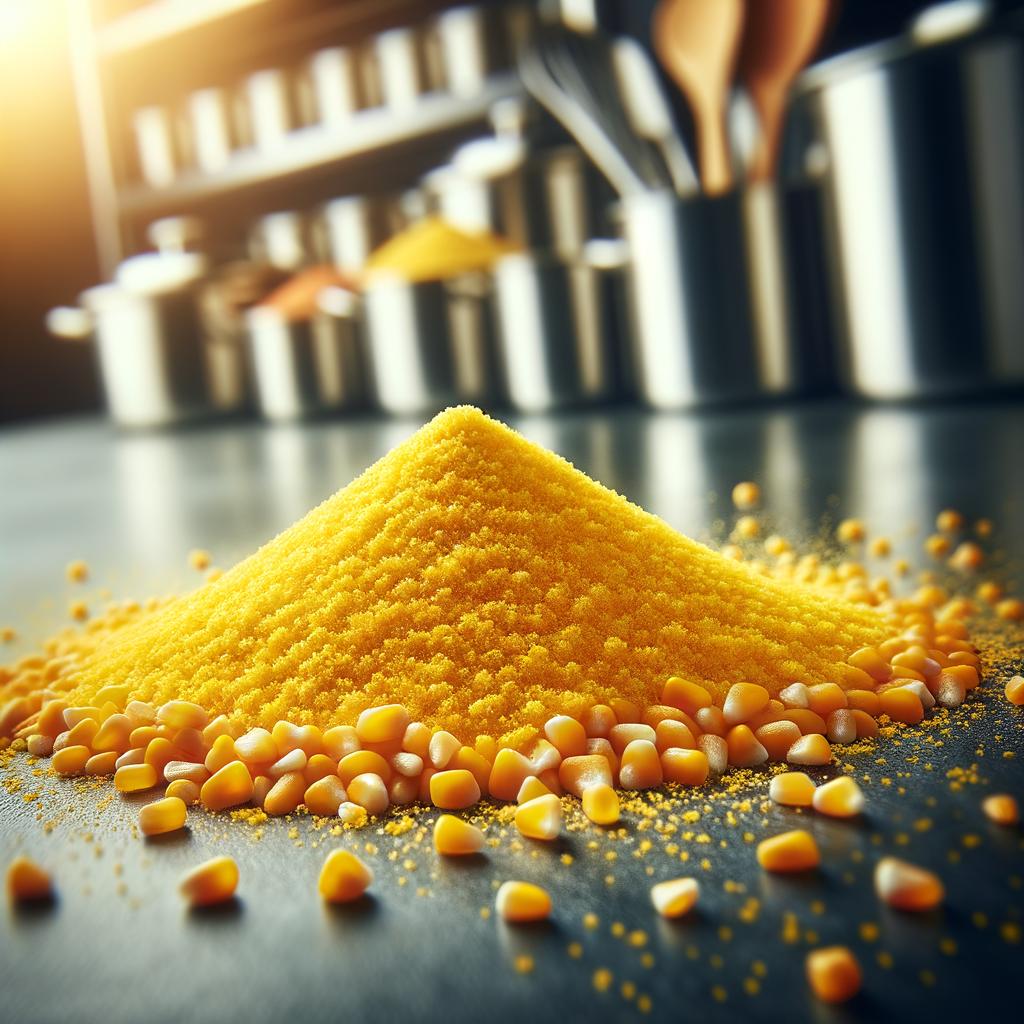Corn Flour

Description Corn flour, also known as maize flour, is a versatile ingredient that graces every pantry with its golden hue. It is finely ground from the whole kernels of yellow or white corn, boasting a soft and powdery texture that is a delight to touch. The flavor profile is subtly sweet with a distinctive corn taste, which adds a unique depth to any dish it graces. What sets corn flour apart from its peers is its gluten-free nature, making it a boon for those with gluten sensitivities and a wonderful alternative to wheat flour.
Primary Uses Corn flour is a culinary chameleon, adapting itself to a myriad of dishes across the globe. It is the star in the Mexican tortilla, the backbone of the American cornbread, and the secret behind the crispy coating of British fish and chips. It thickens sauces, binds ingredients, and lends a light texture to baked goods. Beyond the kitchen, corn flour is also used in natural cosmetics due to its soothing properties, and it plays a spiritual role in Native American ceremonies as a symbol of sustenance and life.
History The story of corn flour begins with the ancient civilizations of Central America, where corn was revered as a gift from the gods. The Mayans and Aztecs ground corn into flour, creating the precursor to modern-day tortillas. With the arrival of Christopher Columbus in the New World, corn flour made its voyage across the Atlantic, quickly ingratiating itself into European cuisine. Over time, its use spread worldwide, and today, it is a staple ingredient in countless cultures. The legend of the Corn Mother, a Native American myth, tells of a woman who magically produces corn from her body to feed her family, symbolizing the vital role of corn and corn flour in their society.
Nutritional Information Corn flour is a nutritional powerhouse, packed with fiber, vitamins, and minerals. It is rich in Vitamin A, which supports eye health, and B vitamins, which aid in energy production. It also provides essential minerals like iron, zinc, and magnesium. Being gluten-free, it is a safe choice for those with celiac disease or gluten intolerance. Compared to wheat flour, corn flour has fewer calories and less protein but boasts a higher amount of dietary fiber. Its consumption can support digestive health, promote satiety and contribute to a balanced diet. However, like all foods, it should be consumed in moderation as part of a varied and balanced diet.

